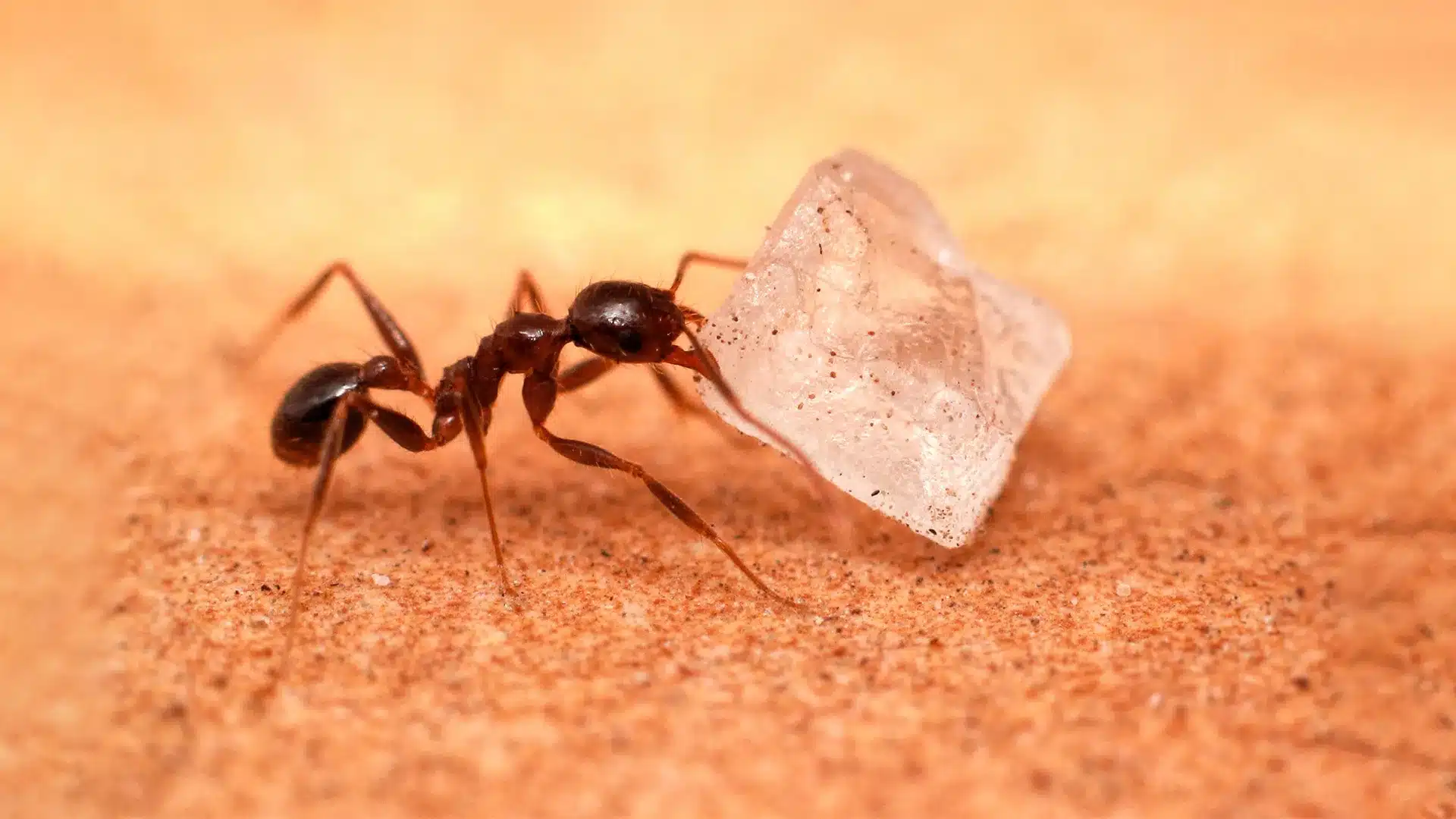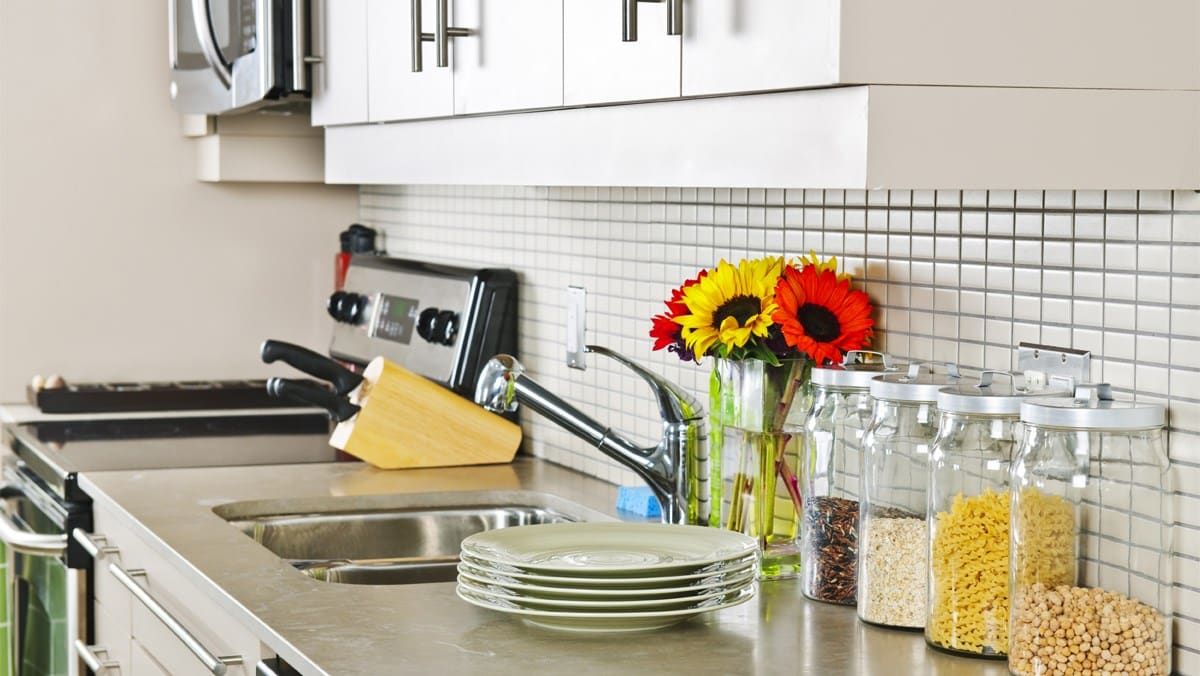Are you looking for the best ways to get rid of ants in the kitchen, taking back control of your culinary space and keeping ants at bay? By following these effective strategies, you can bid farewell to these persistent invaders and restore your kitchen to an ant-free zone.
Let’s dive into the essential steps to reclaim your kitchen and enjoy a hassle-free cooking experience without the pesky presence of ants.
Why am I getting ants in my kitchen?
Ants in the kitchen can be an unsettling sight. More often than not, they’re attracted by the scent of food and the promise of water. If you often see these tiny invaders scurrying around your countertops, it’s a clear sign that they’re finding exactly what they need: sustenance. From bits of leftovers to uncovered foodstuff and unattended sugary spills, your kitchen offers a veritable buffet for ants.

How to get rid of ants in kitchen
Don’t let these unwelcome guests overrun your beloved kitchen. With the following strategies, you can reclaim your space and keep ants at bay.
Get rid of the source of their food
The first and foremost strategy is to eliminate what’s luring ants into your kitchen. Scraps of food and sugary substances are the main culprits.
Start by keeping your kitchen spotless. After each meal, clean the surfaces thoroughly, ensuring no crumbs or residue are left behind.
Store food, especially sweets, in airtight containers. Empty your trash regularly and clean the bins to remove any food residue.
Get rid of tiny ants from entering by obstructing their entry points
The second step is to create a barrier that will prevent ants from entering your kitchen. Identify their entry points, which are often tiny cracks and crevices in the walls or floor. Use caulk to seal these off, effectively shutting the door on them. Weather stripping on doors and windows also helps. Remember, even the smallest gap can invite an army of ants into your kitchen.
Use ant killer
Sometimes, maintaining cleanliness and blocking entry points might not be enough. In this case, resort to using ant killer products. There’s a variety of ant baits and traps available in the market that can efficiently deal with ant infestation. These products attract ants with a food source, which they take back to their colony, subsequently killing them. Always follow the instructions on the label for effective and safe use.
Using a natural ant spray
If you’re not keen on using chemical-based ant killers, a natural ant spray can be a good alternative. Natural sprays, often made with essential oils like peppermint or citrus, are effective at deterring ants. These are safe to use around pets and children and offer an eco-friendly solution to your ant problem.
Get rid of small ants by natural and homemade products
Before reaching for the insecticides, consider using natural remedies. These homemade solutions not only deter ants but are also eco-friendly and safe for household use. Here are some effective ones to try:
Using Diatomaceous Earth to kill small ants in kitchen
Diatomaceous Earth, a natural powder made from tiny fossilized aquatic organisms, is lethal to ants but safe for humans and pets. Simply sprinkle this on ant trails and entry points, and let it do its work. It kills ants by piercing their exoskeleton, causing them to dehydrate and die.
Using Boiling Water to kill tiny black ants in kitchen
Boiling water can be an instant, albeit a bit harsh, remedy to an ant problem. If you’ve located the ant mound, pour boiling water into it. This method is quick but remember to exercise caution to prevent burns.
Pepper can get rid of ants in kitchen
Ants despise the strong scent of pepper. You can use either black or cayenne pepper. Sprinkle it around the kitchen, focusing on areas where you’ve spotted ants. While it won’t kill ants, it’ll surely deter them.
Using Hand Soap in controlling tiny brown ants in your kitchen
Hand soap, when mixed with water, can disrupt the scent trails left by ants. Mix equal parts soap and water in a spray bottle and spritz it wherever you see ants. This solution confuses ants, effectively preventing them from finding food sources.
Using Boric Acid to kill ants in kitchen
Boric acid is a potent ant killer. Mix it with a sweet substance like sugar water and place the mixture near ant trails. The ants will be drawn to the sweet bait, consume the boric acid, and die.
Borax can eliminate ants in your house
Borax works similarly to boric acid. When combined with sugar, it becomes an irresistible, lethal treat for ants. Sprinkle this mixture around problem areas to tackle an ant infestation effectively.
Using Vinegar to get rid of ants in kitchen
Vinegar, with its strong smell and acidity, is excellent for disrupting ant trails. Mix equal parts water and white vinegar in a spray bottle and use it on ant trails and entry points. It’s an effective deterrent that ants would rather avoid.
Essential Oils can eliminate little ants in your house
Essential oils like peppermint oil and tea tree oil are natural ant repellents. Add a few drops to water and spray the mixture around your kitchen. The strong scents will disrupt ant trails and deter them from coming near.
Each of these methods provides an effective, natural solution to an ant problem. Whether it’s using readily available kitchen ingredients or opting for diatomaceous earth or essential oils, these remedies will help keep your kitchen ant-free. Remember, persistence is key when battling ants. Stick with these strategies, and soon enough, you’ll reclaim your kitchen space.
How to keep your kitchen ant-free?
An ant-free kitchen starts with preventative measures. Maintain cleanliness by wiping down surfaces, washing dishes promptly, and storing food in sealed containers. Take the trash out regularly and seal off potential entry points.
However, maintaining a clean kitchen is just one part of the equation. Monitor your space regularly for signs of an ant invasion, such as ant trails or piles of sawdust. Early detection can help you nip a burgeoning problem in the bud.

Use natural deterrents like vinegar, essential oils, or pepper to create an environment that’s uninviting for ants. Diatomaceous earth, borax, or boric acid can be used if you detect an infestation.
Remember, it’s not about one-off efforts but maintaining a consistent routine. By implementing these strategies, you can ensure your kitchen remains a no-go zone for ants.
FAQs
Will ants go away on their own?
Unfortunately, ants are unlikely to leave on their own if they have found a reliable food source in your kitchen. They’ll continue to raid your space until that food source is eliminated, or they’re deterred by some form of ant control.
Should I ignore ants?
Ignoring ants is not advised. A small number of ants can quickly turn into a full-blown infestation. Besides, ants carry bacteria, which can spread over your food and surfaces. It’s always better to tackle the problem as soon as you spot ants in your kitchen.
Why should you not squish ants?
When squished, ants release a scent called a pheromone that signals danger to other ants. Instead of eliminating the problem, squishing ants can lead to more ants swarming into your kitchen. It’s better to use the methods outlined above to handle an ant problem.
What do ants hate naturally?
Ants are naturally deterred by strong scents. They dislike the smell of vinegar, peppermint, cinnamon, and black pepper. Citrus peels, coffee grounds, and certain essential oils can also keep ants at bay. Sprinkling these around ant-prone areas can help deter them.

In conclusion, learning how to get rid of ants in the kitchen is essential for a pest-free home. With Pestweek‘s caring and effective methods, you can successfully eliminate ant infestations and maintain a clean and hygienic kitchen. Stay vigilant and apply these solutions to ensure a happy and ant-free cooking space for you and your family.

Calina Mabel has over 15 years of experience in the field of journalism and communications. Currently, Calina Mabel is the Content Writer for categories such as Cockroach, Ants, Bed Bugs, Mosquito, Rodent, Termite, and Flies on Pestweek.com. She aims to build content for these categories with a focus on providing valuable and accessible information to readers, in order to create the world’s largest knowledge community about Pests.
All content written by Calina Mabel has been reviewed by Emily Carter.

